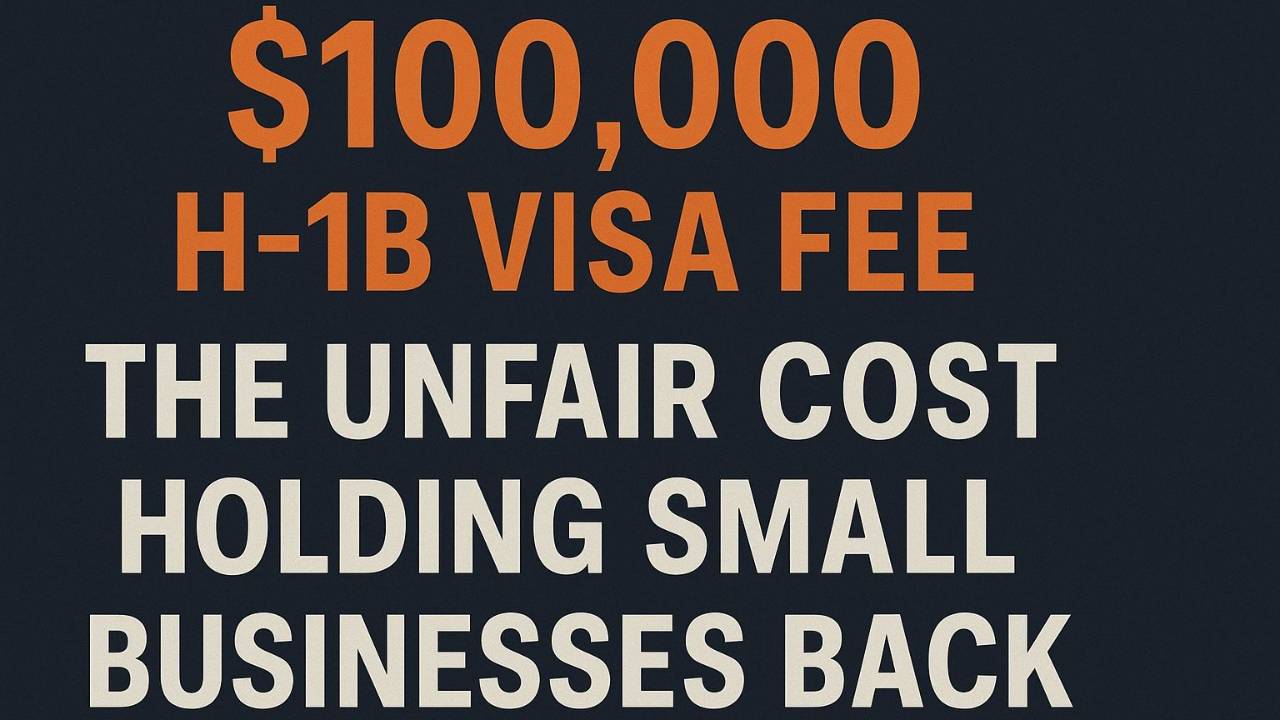How to Diagnose Stagnant Sales: A Real-World Guide for Business Owners
Every business owner hits a wall at some point: sales that once soared now feel like they’ve stalled. You’re putting in the same (or more) effort, but your revenue isn’t budging. Before you throw more money into marketing or hire another consultant promising a “quick fix,” it’s time for a serious diagnostic. Because when your sales are stagnant, the last thing you want to do is treat the wrong problem.
In my 30+ years of building and turning around businesses—some growing to eight figures and others I’ve helped recover from a near collapse—one truth has always held: stagnant sales are never the real problem. They’re a symptom. The key to getting back on a growth path is finding out what’s broken underneath.
What Do Stagnant Sales Look Like?
Stagnant sales don't always mean zero growth. Sometimes, they plateau. You’re no longer scaling, your revenue graph looks flat, or you’re working harder for the same return. Other times, the numbers drop gradually but consistently—and no matter what changes you make, nothing sticks.
You might be experiencing one or more of the following:
-
Increased marketing costs with no return
-
Fewer inquiries or leads despite steady ad spend
-
Loyal customers leaving or not returning
-
High-performing products underperforming
-
Longer sales cycles or customer indecision
If any of those sound familiar, let’s dig into how to find out why it’s happening.
Step 1: Ask the Hard Questions
Before diving into data or hiring outside help, ask yourself these core questions:
-
Has your ideal customer changed?
-
Have market conditions shifted?
-
Are you solving a real and urgent problem for your customer?
-
Are you still positioned as the best option?
-
Do your internal systems support growth—or sabotage it?
These questions aren’t just reflective—they are diagnostic. Your answers will guide you to the area that’s silently working against your sales.
Step 2: Analyze the Sales Funnel—Stage by Stage
Every sales system has multiple stages. If your top-line revenue has stalled, the issue can lie in any of these phases:
Awareness
-
Are enough people discovering your business?
-
Have your traffic sources dried up?
-
Is your brand message still relevant?
If you used to get strong inbound traffic from SEO, referrals, or ads, and that traffic has declined, your stagnation starts here.
Interest
-
Are people engaging with your content, website, or sales team?
-
Are your open rates, click-throughs, or dwell time dropping?
This points to a possible mismatch between your messaging and your audience’s current needs.
Consideration
-
Are prospects moving forward after hearing your pitch?
-
Are you getting ghosted after proposals?
Sticking points here often involve pricing misalignment, poor competitive positioning, or unclear differentiation.
Purchase
-
Are deals closing slower—or not at all?
-
Are objections increasing?
Pricing, trust, or urgency issues usually live here. If prospects don’t see your product or service as a priority, they won’t buy.
Step 3: Check for Internal Bottlenecks
Sometimes, your sales team—or process—is working hard but not smart. Look for:
-
Lead follow-up delays: Are leads being contacted quickly enough?
-
CRM disorganization: Are hot leads slipping through the cracks?
-
Lack of sales training: Is your team equipped to handle objections and close?
Internal dysfunction can be the invisible anchor pulling down your potential.
Step 4: Evaluate Your Marketing Message
You may not have a sales problem at all—you may have a messaging problem.
Over time, markets evolve. What once resonated may now fall flat. Your offer might still be excellent, but if your message doesn’t immediately connect, you’re wasting every ad dollar.
Ask yourself:
-
Does my message clearly explain the transformation I provide?
-
Am I leading with features or outcomes?
-
Is my message different from my competitors—or does it sound the same?
You don’t need better ads. You need a sharper message.
Step 5: Inspect Your Offer Strategy
Many owners overlook this. Ask:
-
Is your offer still competitive?
-
Have you adjusted pricing or packaging recently?
-
Is your offer built for today's buyer behavior?
Maybe your product hasn’t changed, but the market has. Are you offering a flexible payment plan when customers need it most? Are you bundling services that no longer make sense?
Sometimes, the cure for stagnant sales is reimagining what you’re selling—without creating anything new.
Step 6: Review Your Customer Feedback Loop
You may be ignoring the most obvious place to spot a decline: your customers.
-
Are you surveying or speaking to past buyers?
-
Are you analyzing refund requests or customer complaints?
-
Are online reviews trending down—or drying up entirely?
Your former customers hold the clues to why your future customers aren’t converting. Use that feedback as a blueprint for improvement.
Step 7: Revisit Your Strategy—Not Your Tactics
Too often, businesses hit a plateau and double down on activity. More marketing. More content. More networking. More pressure.
But activity doesn’t equal growth. Strategy does.
Here are a few strategy red flags that lead to stagnation:
-
No clear 12-month sales goal
-
No structured customer journey or nurture process
-
No strategic partnerships or scalable lead sources
-
Pricing and positioning not updated in the last 12 months
If you’re spinning your wheels with busywork and still stuck, you’re likely executing a flawed or outdated strategy.
Step 8: Know When It’s Time for Help
Some problems require an outside perspective. If you’ve been stuck for 6+ months, and you’ve tried multiple fixes without results, it's time to bring in an advisor or strategist who can:
-
Audit your business model
-
Spot misalignment between goals and tactics
-
Identify systems or people holding you back
-
Help you pivot without burning down what’s working
One conversation with the right expert can uncover a problem you’ve been blind to for years.
Real-World Example: How We Uncovered the Hidden Block
One of my clients, a $3M business in professional services, came to me saying, “Our sales just dried up. We think our ads aren’t working anymore.”
What I discovered: the issue wasn’t the ads. It was that they were targeting the same audience as five years ago—while the decision-makers in their market had changed entirely. Their buyers aged out, switched roles, and were replaced by a new generation that wanted faster service, transparent pricing, and digital-first communication.
They were selling to ghosts.
We revised their positioning, updated their sales enablement tools, restructured their offer, and within 60 days, they closed $480,000 in new business. The ads didn’t change. The strategy did.
A Diagnostic Checklist for Stagnant Sales
Use this simplified checklist to find where the issue may lie:
✅ Has your target audience changed?
✅ Has your message been updated in the last 6–12 months?
✅ Are your leads qualified and converting—or dropping off?
✅ Are you clear on your offer’s competitive advantage?
✅ Are your internal systems (CRM, sales scripts, etc.) consistent and monitored?
✅ Have you spoken directly to lost customers or buyers who didn’t convert?
✅ Is your sales strategy built for this economy, this customer, and this moment?
If you answered “no” to even two or three of those, that’s likely where to start.
Why Stagnant Sales Can Be a Gift
It may not feel like it now, but a slowdown is often the best time to rebuild something stronger. Stagnant sales signal that it’s time to:
-
Let go of outdated systems
-
Reconnect with your true differentiator
-
Recommit to strategic focus
Growth isn’t always about adding more. Sometimes it’s about removing what no longer works.
How I Help Business Owners Like You
If you’re tired of guessing and ready to get real about what’s causing your sales to stall, I offer business audits that uncover exactly what’s broken—and how to fix it. My approach is direct, no-fluff, and based on over three decades of experience leading companies past the seven- and eight-figure mark.
Don’t waste another quarter in survival mode. Let’s talk.







Responses